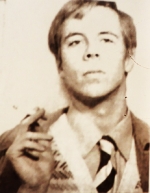Berlin World Epicentre of the Modern Impulse

By Carl Halling
- 492 reads
So much that has become familiar to the West and beyond in the last half-century, from the deconstructive philosophies that dominate our academia, to the theatre of outrage that is the essence of Rock music, pre-existed in some form in the Berlin of the Golden Twenties, during which she existed as the undisputed world epicentre of the Modern impulse.
Under her auspices, great artistic freedom thrived in the shape of - among other era-defining phenomena - the painters of the New Objectivity movement, such as Beckmann, Dix and Grosz, the staccato cabaret-style music of Kurt Weill, Fritz Lang's dystopian Metropolis, and the provocative dancing of Cabaret queen Anita Berber.
And then there's the notorious sexual liberalism, which, through pictorial depictions of her cabarets and night clubs, has carried a power to shock even as far as the jaded 21st Century.
But beneath the glittering carapace, she bore within her the seeds of her own ruin, for despite the genius that flourished alongside the licentiousness, she was operating largely in defiance of the Judeo-Christian moral values that have long formed the basis of Western society.
Given that several other European and American cities were hardly less hysterically dissolute than Berlin, it's little wonder that the key Modernist decade of the twenties has been described by some critics as the beginning of the end of Western civilisation.
In its wake came the Great Depression, the unspeakable horrors of the Second World War, and the collapse of the greatest empire the world had ever seen, all of which were succeeded in turn by the dawning of the Rock and Roll era, and its quasi-religious exaltation of youth, which some critics see as the very triumph of Western decadence.
- Log in to post comments


